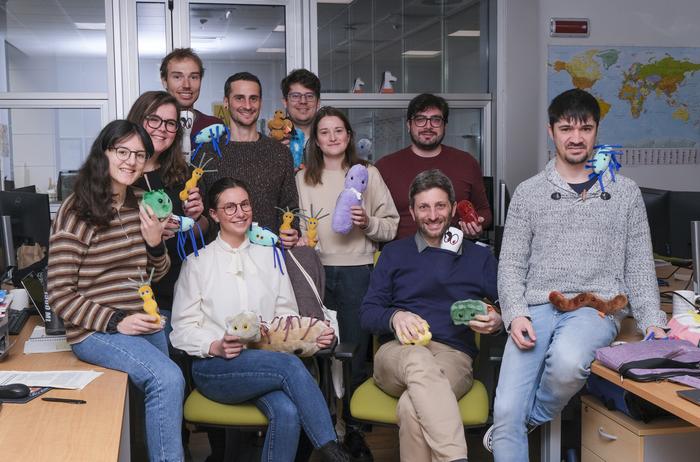
In a groundbreaking advancement that could revolutionize colorectal cancer screening, an international consortium of researchers has unveiled a microbial signature linked to colorectal cancer, offering promise for developing non-invasive diagnostic tools. Spearheaded by the University of Trento and coordinated by Professor Nicola Segata and first author Gianmarco Piccinno, this study harnesses cutting-edge metagenomics and machine learning techniques to analyse gut microbiomes at an unprecedented scale. Published in Nature Medicine, the research encapsulates data from 3,741 stool samples across 18 global cohorts, providing deep insights into the microbial landscape associated with colorectal cancer progression.
Colorectal cancer remains one of the most common and deadly cancers worldwide, ranking third in incidence and second in mortality. Early detection is critical to improving outcomes, yet current screening modalities such as colonoscopies, while effective, are invasive, costly, and often deter patients. The allure of a simple stool-based test, capable of detecting cancer-associated microbial changes non-invasively, has galvanized scientific inquiry for years. This new study pushes the frontier forward by identifying a reproducible set of gut bacteria that correlate strongly with colorectal malignancy, potentially setting the stage for transformative diagnostic approaches.
At the core of the findings is what researchers describe as a “microbial signature” comprising approximately a dozen bacterial species whose abundance is consistently elevated in patients with colorectal cancer. While Fusobacterium nucleatum has long been recognized for its association with the disease, this research shines a spotlight on other prominent organisms such as Parvimonas micra, Gemella morbillorum, and Peptostreptococcus stomatis. The precise biological mechanisms underlying their colonization within the tumor microenvironment remain to be fully elucidated, but their presence in stool samples offers a unique biomarker footprint for disease detection.
.adsslot_96fhMBqtJO{ width:728px !important; height:90px !important; }
@media (max-width:1199px) { .adsslot_96fhMBqtJO{ width:468px !important; height:60px !important; } }
@media (max-width:767px) { .adsslot_96fhMBqtJO{ width:320px !important; height:50px !important; } }
ADVERTISEMENT
Professor Segata and his team postulate that these oral-origin bacteria translocate and thrive in the colorectal tumor microenvironment, a niche modified by cancerous changes in tissue, immune responses, and metabolic shifts. Such specific microbial infiltration could perturb host cellular processes, potentially through mutagenic toxins or inflammatory mediation, thereby implicating the microbiota not only as biomarkers but also as possible contributors to colorectal carcinogenesis. Yet, whether they play a causative role or are merely opportunistic colonizers remains an open scientific question.
The study’s integrative approach leverages state-of-the-art metagenomic sequencing which captures comprehensive bacterial genomic information from stool samples, enabling strain-level resolution of the gut microbiome. By pooling datasets across multiple international cohorts, the investigators improved statistical power and reproducibility—a critical advancement given prior inconsistencies in microbiome research. The amassed data was then parsed through sophisticated machine learning models engineered to discern patterns predictive of colorectal cancer presence and stage, achieving classification accuracy nearing 90%.
This melding of computational science with metagenomic biology exemplifies a paradigm shift towards precision diagnostics. The predictive model assesses individual microbiome profiles to estimate colorectal cancer risk, facilitating a more personalized screening strategy that could dramatically reduce the reliance on invasive procedures. Furthermore, the correlation of microbial abundance with tumor stage and anatomical location underscores the potential for these bacteria to inform disease severity and guide clinical decision-making.
Despite these promising advances, clinical translation faces hurdles. The authors emphasize the need for future registered clinical trials to validate the predictive value and utility of this microbial signature in broad population screening. The nuanced relationship between microbiome composition, host genetics, environmental factors such as diet and pollution, and colorectal cancer etiology is complex and multifaceted, necessitating deeper biological exploration and longitudinal studies.
This research unfolds against the backdrop of growing evidence linking the gut microbiome to not only colorectal cancer development but also treatment response, particularly in immunotherapy for metastatic malignancies. The European Commission-funded ONCOBIOME project, of which this study is a part, aims to dissect these relationships further, bridging microbiome science with oncology therapeutics for improved patient outcomes.
Additionally, the urgency to examine early-onset colorectal cancer, which has been increasing among individuals under 50, propelled this research. The Cancer Grand Challenges initiative, through its PROSPECT team, spearheads efforts to uncover the mechanisms behind this alarming trend, with Segata and Piccinno contributing as key collaborators. This consortium’s interdisciplinary approach integrates epidemiology, microbiology, and computational biology, underscoring the complexity of cancer biology in younger populations.
The vast international collaboration facilitating this work is an exemplar of scientific synergy. Data and expertise converged from studies across North America, Europe, and Asia, bringing together diverse microbiome datasets that bolster universality and robustness of conclusions. Despite lacking representation from Africa, South America, and Oceania, the scope remains impressive and highlights the global importance of colorectal cancer research.
Looking forward, the implications of this study extend beyond screening. Understanding microbial dynamics in colorectal cancer may illuminate novel therapeutic targets, potentially enabling microbiome-modulating interventions to complement existing treatments. As machine learning tools become increasingly sophisticated, their integration with omics data stands to revolutionize oncology diagnostics and personalized medicine.
In conclusion, the identification of reproducible microbial biomarkers for colorectal cancer represents a significant stride toward non-invasive, accurate, and accessible screening options. While challenges remain in clinical validation and mechanistic understanding, the convergence of microbiome research and computational modeling heralds a transformative era in cancer detection and precision health. This scientific milestone offers hope for earlier diagnosis, tailored interventions, and ultimately improved survival for colorectal cancer patients worldwide.
Subject of Research: Cells
Article Title: Pooled analysis of 3,741 stool metagenomes from 18 cohorts for cross-stage and strain-level reproducible microbial biomarkers of colorectal cancer
News Publication Date: 3-Jun-2025
Web References:
https://www.nature.com/articles/s41591-025-03693-9
DOI: https://doi.org/10.1038/s41591-025-03693-9
Image Credits: UniTrento – Ph. Federico Nardelli
Keywords: colorectal cancer, gut microbiome, microbial signature, metagenomics, machine learning, non-invasive screening, tumor microenvironment, Fusobacterium nucleatum, Parvimonas micra, cancer biomarkers, early detection, precision medicine
Tags: advancements in cancer screening techniquescolorectal cancer diagnostic testcolorectal cancer incidence and mortalityearly detection of colorectal cancergut microbiome researchinternational research consortium on cancermachine learning in diagnosticsmetagenomics in cancer researchmicrobial signature in colorectal cancernon-invasive cancer screening methodsstool sample analysis for cancertransformative cancer diagnostic approaches

